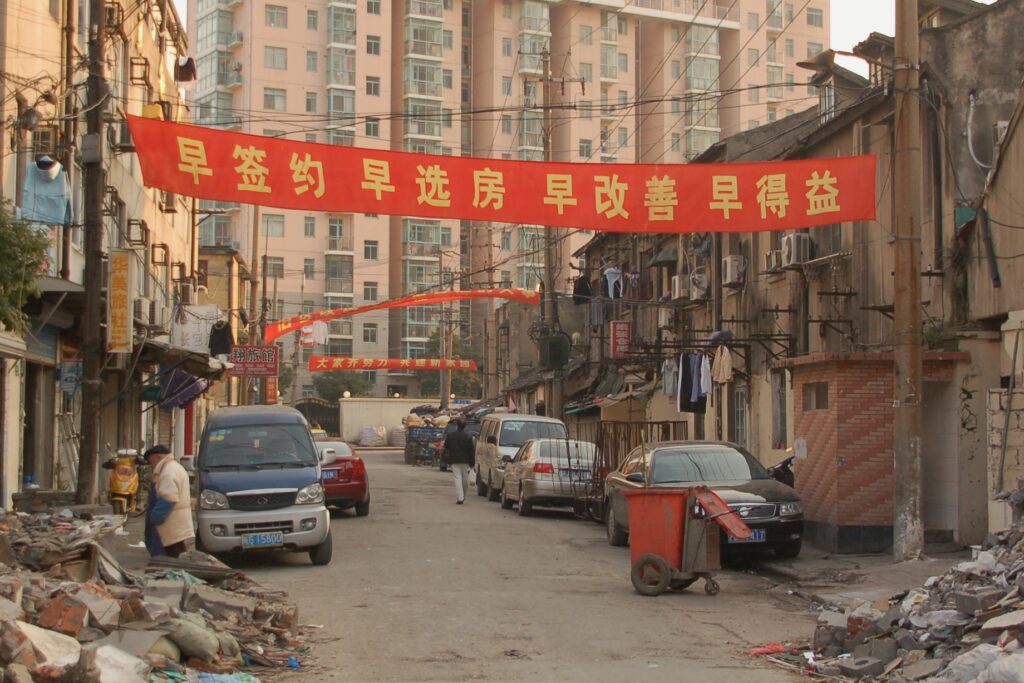A new paper by Björn Ahl

While administrative law in China developed slowly, starting from the 1990s, the importance of administrative procedure law to fight corruption and foster society’s trust in the public administration became apparent. However, China’s legislation did not firmly establish the due process principle in the law. Rather, administrative law scholars as well as courts in China moved forward and developed the notion of due process. For instance, the Intermediate People’s Court of Suqian City in Jiangsu has in 2004 found that the local urban development bureau should have given inhabitants of buildings they demolished the chance to make statements and defend themselves, despite respective provisions being absent from the law. Meanwhile, legal scholars argue that due process is an unwritten general legal principle of administrative law.
Earlier investigations have pointed out that while judges have made use of due process in their adjudication work, such cases, even if designated representative by the SPC, do not suffice to fully establish the principle in administrative procedure law (Haibo He 2008). The post-2013 era in China is generally characterized by developments pointing to a regression of the rule of law. In this paper, administrative cases decided by Chinese courts from 2014 to 2019 are analysed to determine whether or not courts have further expanded the application of the due process principle. During that period, the High People’s Courts and the Supreme People’s Court published 321 decisions that mentioned the due process principle. About 70 percent of the court decisions dealt with rights relating to immovable property, including land use rights of state-owned land and the ownership of collectively owned land.
When an institution of higher learning makes a decision against a student who violates school rules and disciplines that affects his/her basic rights, it must allow the student to defend him/herself, and it must deliver the decision in a timely manner after it is made; otherwise, it will be deemed a violation of due process.
The due process principle finds its expression for instance in the famous case of student Tian Yong 田永, who was denied his graduation certificate by a university. Beijing Intermediate People’s Court decided in 1999 that the university’s decision was unlawful, arguing that due process was not being observed by the school. (指导案例38号,最高人民法院公报 2015 (8))
While a general administrative procedure law is absent at the national level, some laws such as the Administrative Penalty Law, the Administrative Enforcement Law and the Administrative Licensing Law include several due process requirements. The Administrative Penalty Law for instance, amended in 2021, includes the requirement for administrative agencies to notify in advance and consider any objections from persons against whom an administrative penalty is taken, among others. Some of the changes in the new Administrative Penalty Law were inspired by experimental legislation at the local level: Provincial legislators such as in Hunan (in 2008) and Jiangsu (in 2015) had already passed Administrative Procedure Regulations with a wide range of due process requirements. Apart from local legislation, policy documents adopted by the State Council emphasize the importance of due process rights and while they are not legally binding, do indicate a general trend for future legislation.
The study of court decisions undertaken here demonstrates that indeed, courts have continued to expand the application of due process after 2013. Due process rights are applied across different fields of substantive administrative law, and to different forms of administrative actions, including administrative penalty decisions as well as physical acts such as the demolishing of buildings. Courts however rarely elaborate on specific requirements the due process principle contains. Among others, notification rights, rights to a hearing and the right to ‘adequate participation’ for adressees of administrative acts have been held to be part of due process.
However, these developments are not always directed towards a general strengthening of administrative procedure to provide effective pre-judicial remedies. In several cases, courts use the reference to the due process principle as a catch-all clause for administrative injustices including for instance the requirement that belongings of former inhabitants of a building must be appropriately stored before demolition. Courts further do not always attach legal consequences, such as the revocation of the administrative act, where they find a violation of due process. We find that applying the due process principle helps courts avoid deciding on the substantive legality of the administrative acts in question, potentially interfering in the conflict between different administrative agencies.
Björn Ahl is Professor and Chair of Cologne University’s Chinese Legal Culture. Before joining the University of Cologne in 2012, he was Visiting Professor of Chinese Law, Comparative Public Law and International Law in the China EU School of Law at the Chinese University of Political Science and Law in Beijing. Prior to that he held a position as Assistant Professor of Law in the City University of Hong Kong. He has also worked as Associate Director and Lecturer in the Sino German Institute of Legal Studies of Nanjing University and as a Researcher at the Max Planck Institute of Comparative Public Law and International Law in Heidelberg. Find him on LinkedIn.
